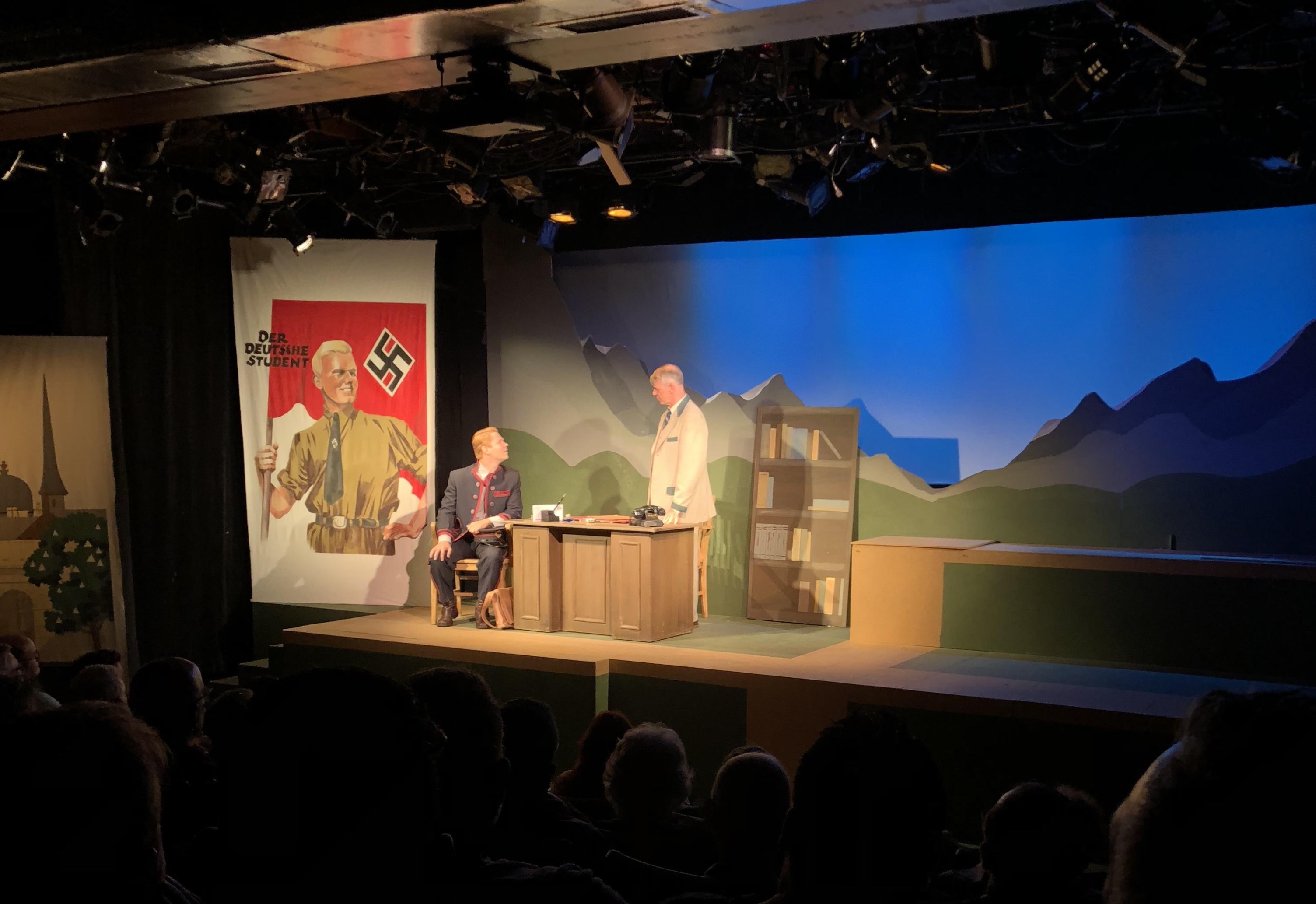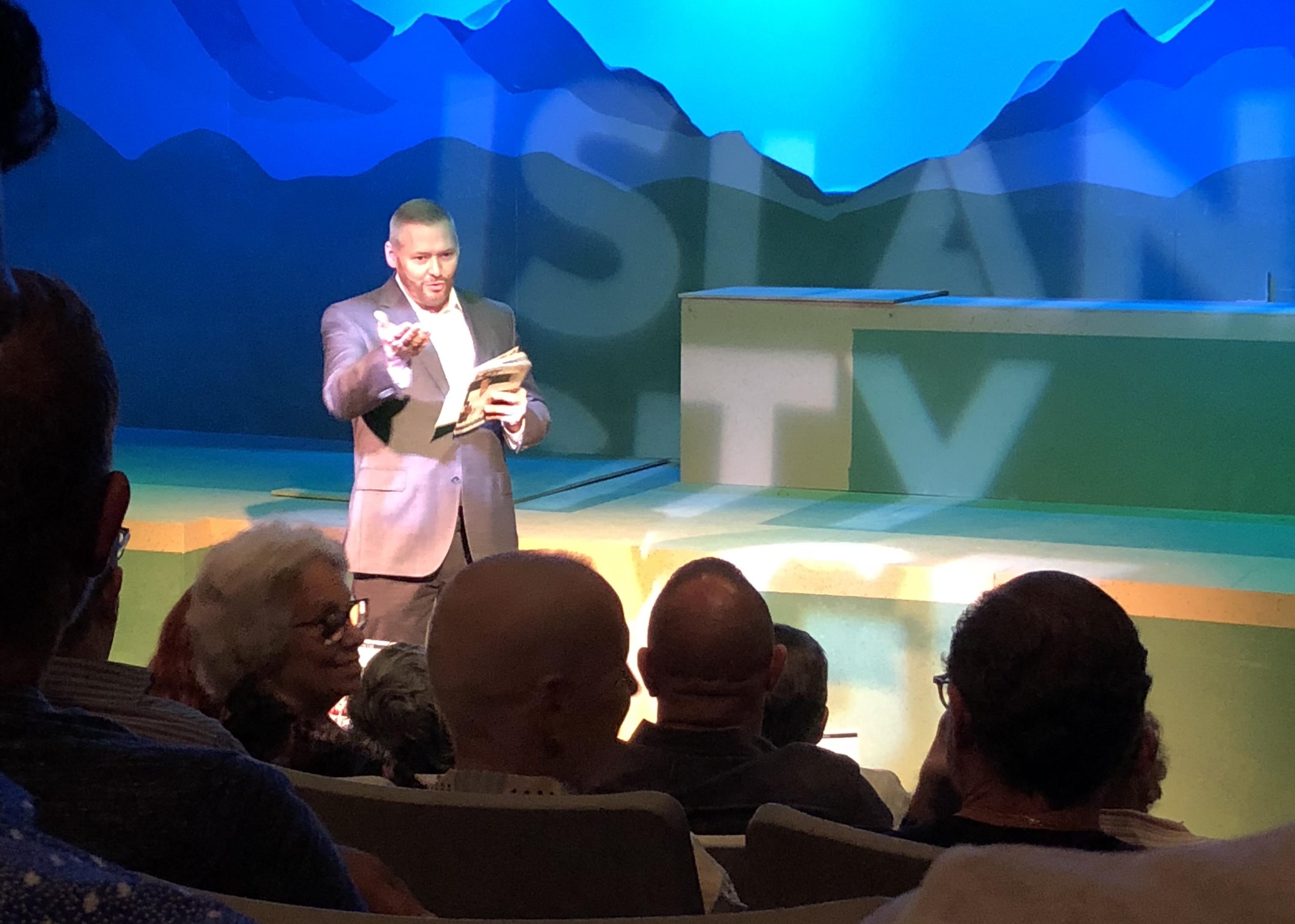The Radicalization of Rolfe opened to a full house last weekend at the Island City Stage

SHADE-O-METER RATING
4 OUTTA 5 WERKS: “SHE GAVE GOOD FACE – SHE SERVED IT”

BY JESUS PUENTE
The Radicalization of Rolfe, which is playing at Island City Stage in Wilton Manors, is a play about “Rolfe” from the musical, The Sound of Music. Before the play began, bright lights illuminated the stage, which helped bring the illustrated backdrop of green pastures, blue skies, and the iconic hills alive with impressions of The Sound of Music. In contrast, posters of Nazi propaganda and paintings of European architecture reminded the audience what time period they had just stepped back into.
ADVERTISEMENT

We last remember Rolfe delivering telegraphs, and as the “17-going-on-18” love-interest of the Von Trapp daughter, Liesl Von Trapp. Rolfe’s scenes in the movie were few, but many will remember the number where he insisted that Liesl needed a man such as himself to care for her. We also remember him in the final scene of The Sound of Music, where he gives away the family’s position as they’re attempting to escape from the grasps of Nazis. So what contributed to this promising young man’s downward spiral, to the point where he would ultimately betray the Von Trapps?

In The Radicalization of Rolfe, we’re provided that piece of the missing puzzle that made us all ponder, “why?” In the secret life of this telegraph delivery-boy, the audience is given more insight of his influence by the local Nazi leader, Herr Zeller, devilishly brought to life by Michael Kehr. In the play, Rolfe—meticulously portrayed by Jordon Armstrong—struggles with his passion to sing and his desire to compete in a local folk competition, with the hopes of someday getting on the radio. However, his biggest conundrum is his romantic involvement with the lovable and ever-optimistic Johan, the nephew of the Von Trapp family’s sharp-witted housekeeper.

Set in roughly four settings, The Radicalization of Rolfe delves into the dark reality of Austria during the Third Reich. The play was a somber, thought-provoking drama of taboo love, reminiscent of Brokeback Mountain. The main character struggles to accept his own self-identity, hoping that he can quit his “deviant” urges. I also thoroughly enjoyed the minor comedic relief, with references both to and from The Sound of Music. The references actually compel the viewer to revisit the film once the play has ended—which I did.
ADVERTISEMENT

However, I was a bit disappointed that a play springing from one of the most popular musicals of all time only featured a brief ten-second snippet of Rolfe’s hidden “singing” talent. Yet, I had to remember that The Radicalization of Rolfe was not purported as a musical; it’s framed to tell the truth of one of the film’s forgotten and misled characters.

Much like the musical, the play was centered around one of history’s darkest times, and it also managed to incorporate the history of gays during the holocaust. The play was a bittersweet piece, which reminded me of the still-present deathly consequences that gays continue to experience in many parts of the world. The Radicalization of Rolfe tells an important story of a “forbidden” love. A love that, unfortunately, has people in some countries still running for “the hills” today.
The Radicalization of Rolfe runs through April 29th at Island City Stage, with performances at 8:00 p.m. Thursday through Saturday, and on Sunday at 5:00 p.m. Island City Stage is located at 2304 N. Dixie Hwy., in Wilton Manors, Florida.